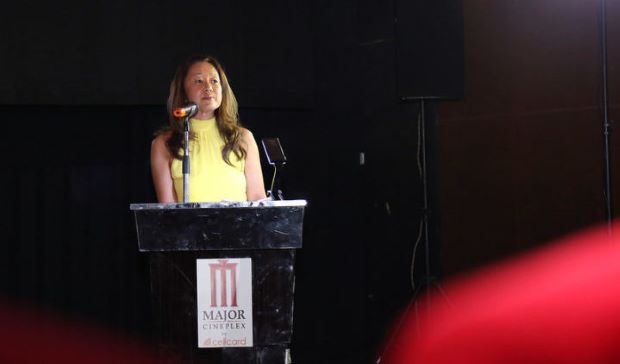Weerawansa’s regime-change conspiracy theory confounds US ambassador
By Himal Kotelawala
COLOMBO – US Ambassador to Sri Lanka Julie Chung has expressed disappointment over a book authored by a Sri Lankan MP detailing an alleged US-backed regime-change conspiracy, which Chung said should be labelled fiction.
“I am disappointed that an MP has made baseless allegations and spread outright lies in a book that should be labelled ‘fiction’. For 75 years, the US [and Sri Lanka] have shared commitments to democracy, sovereignty, and prosperity – a partnership and future we continue to build together,” Chung tweeted Wednesday (26).
The ambassador’s remark was a thinly veiled reference to a recently published book by MP Wimal Weerawansa, a Marxist-turned-nationalist politician with a penchant for conspiracy theories that allude to US-led Western imperialist forces looking to destabilize global south states like Sri Lanka. The firebrand MP, widely seen as pro-China and pro-Russia in his foreign policy outlook, was also an influential cabinet minister of several governments headed by former Presidents Mahinda Rajapaksa and Gotabaya Rajapaksa.
On Wednesday, at the launch of his book Nine: The Hidden Story, Weerawansa spoke of an alleged plot to assassinate then President Gotabaya Rajapaksa during the youth-led Aragalaya anti-government protests of 2022. The protests, which for weeks sustained their peaceful disposition, intensified after pro-government elements launched an unprovoked attack on the protestors gathered at Colombo on May 9, which then led to retaliatory mob violence island-wide. One government MP was killed and the residences of several legislators were torched in the chaos that ensued.
At Wednesday’s event, Weerawansa claimed that a conspiracy was hatched to assassinate President Rajapaksa and top military officials and have the Speaker of Parliament take over as head of an interim government. This scheme was to unfold around the second week of July before Rajapaksa resigned after fleeing the country, according to the MP’s purported revelation.
The former MP even claimed that the absence of former Army Commander, Gen Shavendra Silva, from the country the previous day was suspicious. He added that allegations of human rights violations levelled at Silva by the United Nations were, in fact, aimed at controlling him.
Chung, in a move somewhat uncharacteristic of a senior Western diplomat in Sri Lanka, took to Twitter to flatly and sardonically reject the MP’s claims. The Chinese embassy in Colombo, in contrast, has been noted for not mincing its words when responding to comments made by local politicians.
The defence ministry, meanwhile, also released a statement on Weerawansa’s remarks on Gen Silva’s movements around the time of the alleged plot. The ministry said the general had flown to India to take part in a Deputy National Security Advisor Level Meeting of the Colombo Security Conclave, a security conference organized among friendly countries in the South Indian Ocean region, held on July 7.
“The Ministry of Defence emphasizes that under the directions and approval of the then President of Sri Lanka and the Defence Ministry, the Chief of Defence Staff (CDS) and former Commander of the Army General Shavendra Silva participated in the meeting representing the Government of Sri Lanka,” the defence ministry said.
It rejected the MP’s comment as “baseless”.
Political analysts speculate that the particular strain of nationalism, which is far from fringe, represented by the likes of Weerawansa is now languishing in the post-Aragalaya political wilderness, many of them having abandoned the Rajapaksa camp, at least on the surface, for the time being, due to its seemingly irreversible unpopularity. This group, commentators note, is unable to hitch its wagon to any viable alternative that stands for the same ideals and objectives that the Rajapaksa-led camp which it once proudly called home. The public’s appetite for “international conspiracies” is also no longer what it once was in light of Sri Lanka’s worst currency crisis since Independence, analysts say.
Others, however, while dismissing outlandish conspiracy theories, point to growing US strategic interest in Sri Lanka in the post-war years that saw Chinese influence in the country increase under successive Rajapaksa governments.
In a separate development, the US State Department announced Thursday (27) that the US government has barred entry to Sri Lanka’s war-time Navy Commander Admiral Wasantha Karannagoda and his wife.
-economynext.com



Comments are closed, but trackbacks and pingbacks are open.